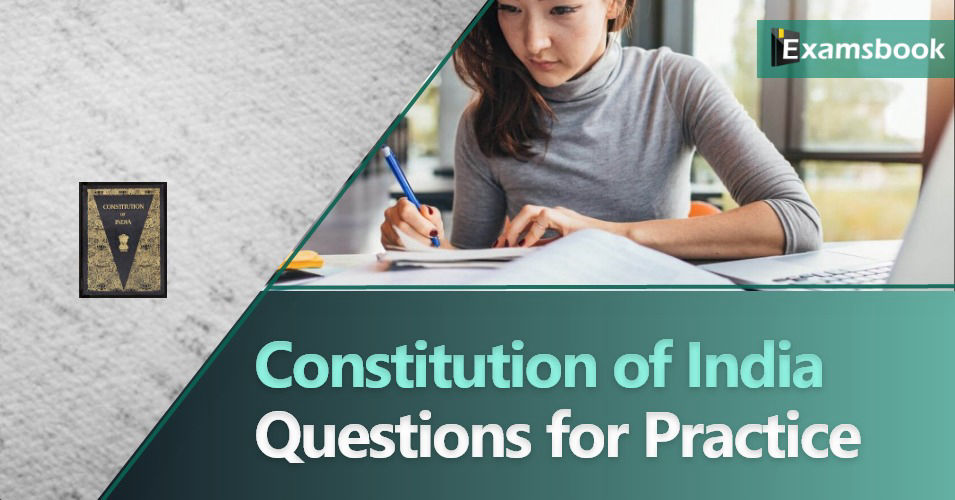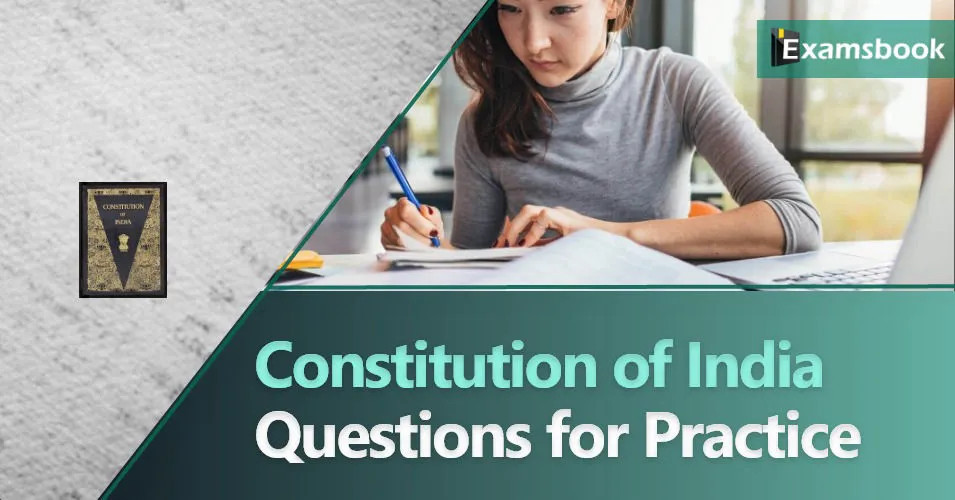


How many fundamental rights were given in the beginning?
(A) 8
(B) 6
(C) 7
(D) 4
Which one of the following categories of emergency has not been declared so far?
(A) national emergency
(B) emergency due to break down of constitutional machinery
(C) financial emergency
(D) none of the above
In which article is the provision of impeachment of the President given?
(A) Article-61
(B) Article-75
(C) Article-72
(D) Article-53
1. Article 61 of the Indian Constitution provides for impeachment of the President. According to this article, when the President is impeached for violation of the Constitution, the charge shall be preferred by either House of Parliament.
2. The procedure of Article 61 is as follows-
First Stage: A motion to impeach the President is made in either House after not less than fourteen days' notice in writing signed by not less than one-fourth of the total number of members of that House.
Second stage: The motion is passed by a majority of not less than two-thirds of the total membership of the House.
Third step: The passed motion is sent to the other house.
Fourth stage: The second chamber investigates the allegations.
Five stage: If the other house finds the allegations true, the impeachment motion is passed.
When did the Constitution of India came into force?
(A) 26 December 1949
(B) 26 January 1950
(C) 15 August 1945
(D) 26 September 1955
1. The Constituent Assembly passed the Constitution of India on November 26, 1949, but it came into force on January 26, 1950. India came into existence as a Republic on January 26, 1950.
2. The Constituent Assembly was established on December 9, 1946, to frame the Constitution of India. There were a total of 389 members in the Constituent Assembly, out of which 299 members were from the Indian National Congress. The Constituent Assembly drafted the Constitution in 2 years, 11 months and 18 days.
3. The Constitution of India is a written constitution. It is the longest-written constitution in the world. It consists of 395 articles, 8 schedules and 12 schedules. The Constitution sets out the structure, powers and functions of the Government of India. It also ensures the rights and freedoms of the citizens.
What is the Quorum required to run the proceedings of the Lok Sabha?
(A) 1/4th of total members
(B) 2/3rd of total members
(C) 1/3rd of total members
(D) 1/10th of total members
Parliament is also called the Sansad, is the legislature of the Union. It has the President, and two houses- the Upper House and the Lower House. The Upper House is also called the Rajya Sabha or the Council of States while the Lower House is called the Lok Sabha or the House of the people.
Which Article of the Constitution of India provides for a Council of Ministers which shall aid the President in the exercise of his functions?
(A) Article 74
(B) Article 78
(C) Article 79
(D) Article 80
Article 74(1) of the Constitution provides that there shall be a Council of Ministers with the Prime Minister as its head to aid and advise the President, who shall exercise his/her functions in accordance to the advice.
'Agriculture and Irrigation' are included in the list of the Constitution of India, which is
(A) the Union list
(B) the State list
(C) the Concurrent list
(D) residual subjects
14.2. 01 In the Constitution, 'Agriculture' has been placed as Entry 14 in the State List along with several ancillary matters, while some agriculture-related items have been included in the Union List and the Concurrent List.
Under which Article of the Constitution of India, the Supreme Court has beer given place as the 'Court of Records'?
(A) 129
(B) 130
(C) 137
(D) 143
In Indian constitution article 129 make the Supreme Court the 'court of record”. Article 129 says: Supreme Court to be a court of record. -The Supreme Court shall be a court of record and shall have all the powers of such a court including the power to punish for contempt of itself.
Under which of the following Indian Constitution, Article 21-A was inserted?
(A) 73rd Constitutional Amendment Act, 1993
(B) 86th Constitutional Amendment Act, 2002
(C) 42th Constitutional Amendment Act, 1976
(D) 44th Constitutional Amendment Act, 1978
The Constitution (Eighty-sixth Amendment) Act, 2002 inserted Article 21-A in the Constitution of India to provide free and compulsory education of all children in the age group of six to fourteen years as a Fundamental Right in such a manner as the State may, by law, determine.
Which one of the following is not mentioned in the Constitution of India to Setting up?
(A) NITI Aayog
(B) Union Public Service Commission
(C) Finance Commission
(D) Election Commission
The correct answer is Federal. There is no mention of 'Federal' in the Preamble of the Constitution of India. The Preamble of the Indian Constitution provides for freedom of thought, expression, belief, faith and worship.
Get the Examsbook Prep App Today